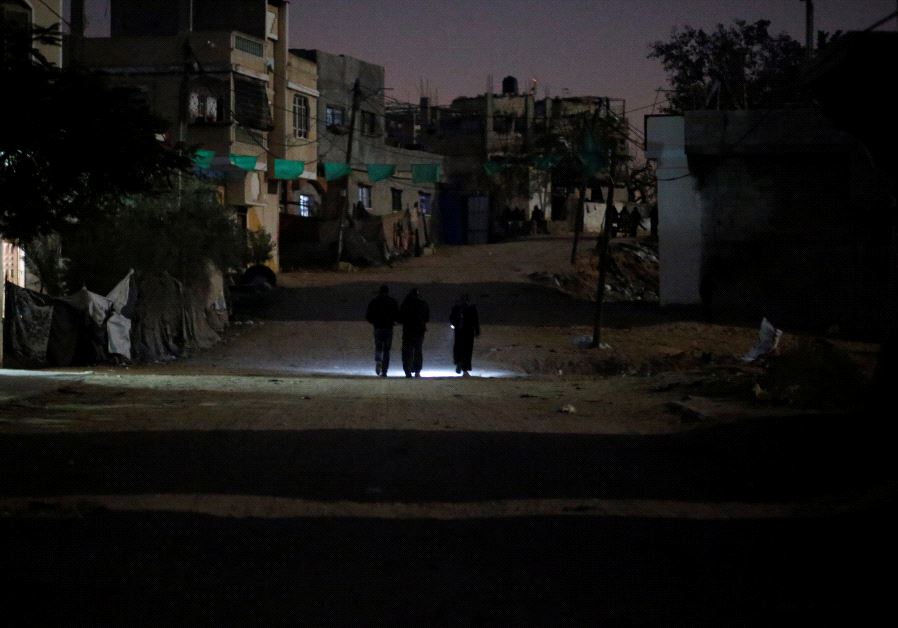Gaza electric plant faces Sunday shutdown crisis
Such a move could leave Gazans with four hours or less per day of electrical power and add to the ongoing shortage of potable water.
 Palestinians walk on a road during a power cut in Beit Lahiya in the northern Gaza Strip.Updated:
Palestinians walk on a road during a power cut in Beit Lahiya in the northern Gaza Strip.Updated: